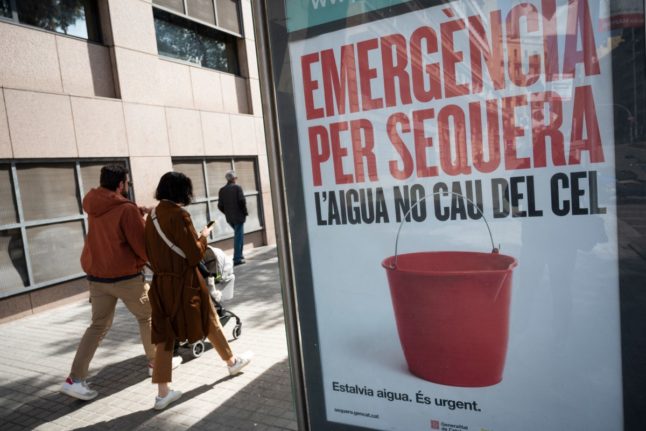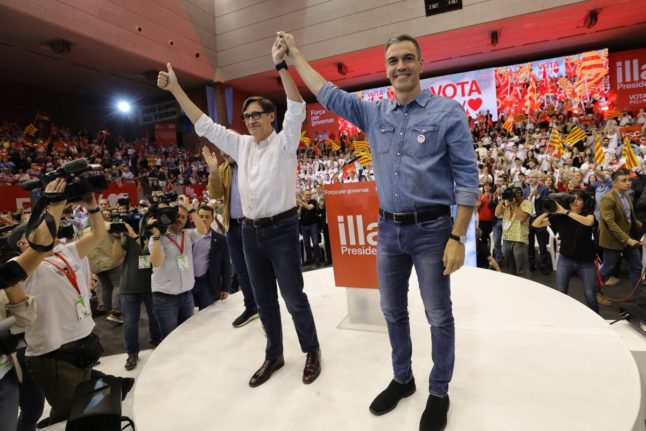The announcement comes ahead of a regional election in Catalonia on Sunday in which the ruling pro-independence ERC party — which has faced criticism over its handling of the drought — is trailing in opinion polls.
Catalonia declared a drought emergency in February after water levels at reservoirs in the Mediterranean region fell below 16 percent of full capacity following nearly three years of below-average rainfall.
The measure led to tighter water use restrictions for some six million people living in a wide area including Spain’s second-city Barcelona, especially for crop irrigation, livestock farming and industry.
But recent rains in the wealthy northwestern region have boosted reserves to nearly 24 percent.
This increase in water reserves “allows us to reduce the restrictions put in place over the last three months,” Catalan government spokeswoman Patricia Plaja told a Barcelona news conference.
“The drought is not over, that is the reality. We are still facing a serious drought,” she added.
The loosened restrictions means farmers will now only have to cut the amount of water used to irrigate crops by 40 percent instead of 80 percent, while industries must reduce water use by 15 percent instead of 25 percent.
Individual use limits will be increased to 230 litres per day from 200 litres during the drought emergency.
Catalonia’s regional government said it would still go ahead with plans to install 12 mobile desalination plants on the Costa Brava, one of the tourist areas most affected by water shortages, as well as a floating desalination plant in the port of Barcelona.



 Please whitelist us to continue reading.
Please whitelist us to continue reading.
Member comments